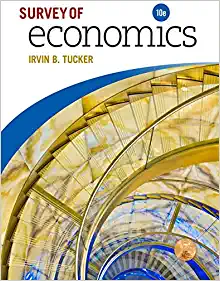
answer this
Explain your understanding of the Case in Point: Economic Growth in Poor Countries....or Lack Thereof. Take note of the 3 Paragraphs in bold font in your explanation. Case in Point: Economic Growth in Poor Countries or Lack Thereof Economist William Easterly in his aptly named book The Elusive Quest for Growth: Economists' Adventures and Misadventures in the Tropics admits that after 50 years of searching for the magic formula for turning poor countries into rich ones, the quest remains elusive. Poor countries just need more physical capital, you say? Easterly points out that between 1960 and 1985, the capital stock per worker in both Gambia and Japan rose by over 500%. The result? In Gambia, output per worker over the 25-year period rose 2%; in Japan, output per worker rose 260%. So, it must be that poor countries need more human capital? Again, he finds startling comparisons. For example, human capital expanded faster in Zambia than in Korea, but Zambia's annual growth rate is 7 percentage points below Korea's. Too much population growth? Too little? More foreign aid? Too much? As Easterly proceeds, writing a prescription for growth seems ever more difficult: \"None has delivered as promised," he concludes (p. xi). While Easterly does not offer his own new panacea for how to move countries to a higher level of per capita GDP, where the model presented in this chapter does seem to provide some explanations of why a country's growth rate may vary over time or differ from another countries, he does argue that creating incentives for growth in poor countries is crucial. Acknowledging a role for plain luck, Easterly argues that good government policiesones that keep low such negatives as ination, corruption, and red tapeand quality institutions and lawsones that, for example, honor contracts and reward meritwill help. How to actually improve such incentives might constitute the next great quest: \"We have learned once and for all that there are no magical elixirs to bring a happy ending to our quest for growth. Prosperity happens when all the players in the development game have the right incentives. It happens when government incentives induce technological adaptation, high-quality investment in machines, and high-quality schooling. It happens when donors face incentives that induce them to give aid to countries with good policies where aid will have high payoffs, not to countries with poor policies where aid is wasted. It happens when the poor get good opportunities and incentives, which requires government welfare programs that reward rather than penalize earning income. It happens when politics is not polarized between antagonistic interest groups. . . . The solutions are a lot more difficult to describe than the problems. The way forward must be to create incentives for growth for the trinity of governments, donors, and individuals.\" (p. 28990) Source: William Easterly, The Elusive Quest for Growth: Economists'Adventures and Misadventures in the Tropics (Cambridge: MIT Press, 2002)








